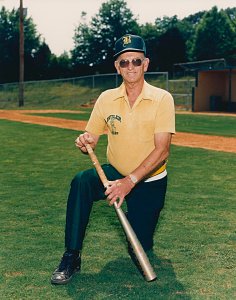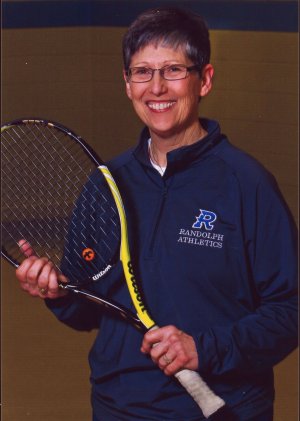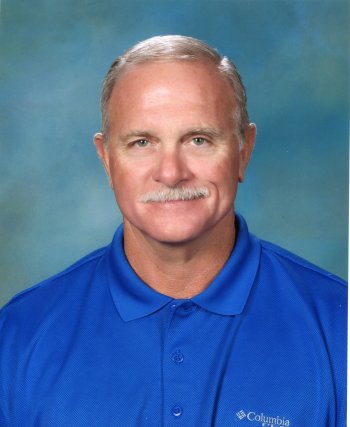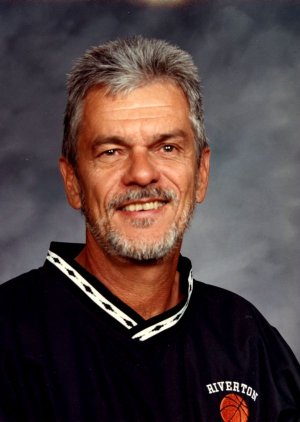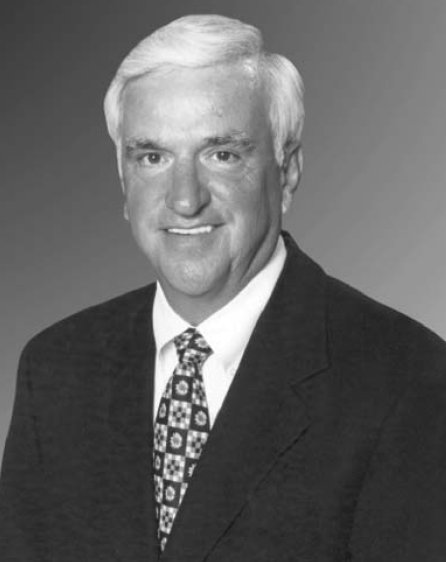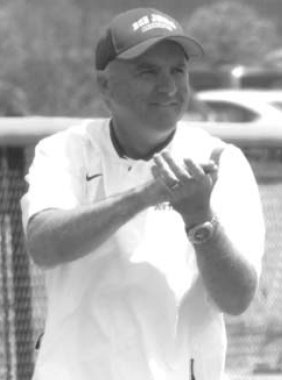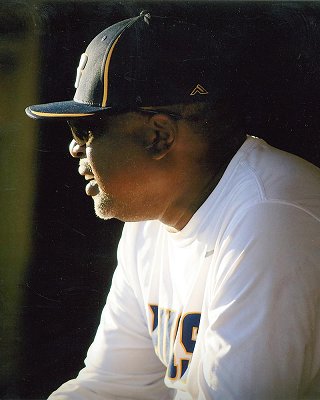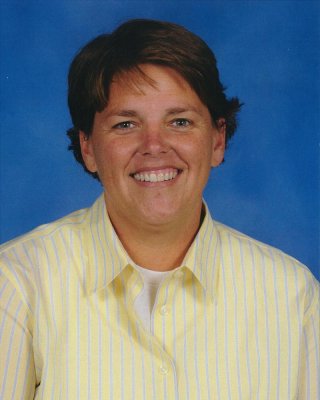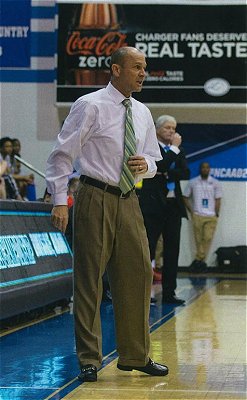

The mens basketball program at the University of Alabama in Huntsville began as an idea. One day in the mid-1960s, somebody at UAH said to several other somebodies, Say, wouldnt it be great if we could have a first-rate college basketball team around here someday?" Thats how it began, so the story goes. One of those other somebodies was Dennis Killips, who could rightly be called the father of UAH basketball. A soft-spoken administrator who could peer into the future and recognize the possibilities of making pipe dreams come true, Killips was the schools first director of athletics even before UAH became an autonomous institution in 1969. A local kid named Len nie Acuff, destined to become the winningest basketball coach in school history a generation later, was only 4 years old at the time. Students were already playing intramural and club basketball, club soccer and club crew at UAH in the late 60s and early 70s, but Killips and the schools first president, Dr. Benjamin Graves, had loftier goals in mind. Killips brought varsity basketball to the university in 1973, joined the National Association of Intercollegiate Athletics (NAIA) and a sporty small-college league called the Southern States Conference, and hired a fiery coach from Murray State named Kayo Willis, who quickly turned the mens basketball into an NAIA powerhouse. Williss teams compiled a 205-136 record in 11 years, winning or sharing five conference championships and four district 25 titles. In the 1980-81 season, the Chargers finished 30-7 and advanced all the way to the NAIA national championship in Kansas City before losing by one point in overtime to Bethany Nazarene College. After Willis left, UAH went through several head coaches, with spotty results. Then in 1997, Lennie Acuff came home. The basketball program has never been the same since. Acuff grew up in Huntsville, played point guard at Johnson High School, attended Columbia State in Tennessee and then transferred to Shorter College in Rome, Ga., where he set records in assists that still stand. Afterward he played for Athletes in Actions college all-star team, which toured Asia and represented the U.S. in a pre-Olympic tournament in Seoul, Korea. After earning a Master of Arts degree from North Alabama, Acuff was hired to coach the mens basketball team at Belhaven College in Mississippi. At age 25, he was youngest head coach at a four-year college in the United States. He later coached four years at Berry College in Georgia. As UAHs 2017-18 basketball season closed in late February, his overall 27-year career at Belhaven, Berry and UAH stands at 530-218 (413-205 at UAH). Under Acuff, UAH has won at least a share of six Gulf South Conference championships and three GSC regular season crowns. Even more impressive, Acuffs Chargers have appeared in the NCAA Division II Tournament 10 times (2000, 2003, 2006, 2010, 2011, 2012, 2013,2015, 2016 and 2017). They finished 29-5 in 2010-11, hosted the South Regional and earned their first berth in the Elite Eight, losing to Minnesota State 95-91 in the quarter finals. They were 29-4 the following season, won the GSC regular season title, hosted another regional and advanced to the Elite Eight again. In 2012, UAH became the first Division II program to participate in the NIT Season Tip-Off. The Chargers faced four Division I opponents, beating North Texas 78-73 in the first round before losing to Kansas State, Cleveland State and Bowling Green. The following season, UAH went 25-6 and appeared in its third straight South Region championship. The Chargers had a 25-6 record in 2012-13, earning their third straight berth in the South Region final after winning another regular season. Acuffs 2016-17 team finished 26-8, won a second conference title in three years, and was the top seed in the South Regional. It was the fifth time in seven years that UAH had reached the Round of 16 in the Division II national tournament. For years, the press has often speculated that Acuff would surely leave for a bigger and flashier basketball job somewhere, considering his outgoing personality and his successes on the court at Belhaven, Berry and UAH. It hasnt happened yet. It may never happen, even though hes only 52 and plenty of other basketball schools are still interested in his services. In a 2011 interview with Mark McCarter of The Huntsville Times, Acuff said: Theres a little something to what was it? a place where everybody knows your name." Several years later, hes still answering the same recurring questions in essentially the same manner. Yes, weve probably had some opportunities to move on to other places," Acuff said recently after learning that he and UAH colleague Les Stuedeman, the schools softball coach, had been elected to the Huntsville-Madison County Athletic Hall of Fame. But as your life evolves, I think maybe your priorities and your ambitions begin to change too. I love Huntsville. Its my hometown. I went to high school here. My family is still here. My wife and kids love it here. I love UAH too, and I love the kind of kids weve been able to recruit here. Weve seen this school become such a high-quality place over the years, not just a great research university but also a place where student-athletes in all our sports can succeed in a big way. Were no longer a drive-up school. Most of our students live on or near the campus now. Its a better quality-of-life experience, not only for our players but also our fans. Why drive to Tuscaloosa or Auburn for a middle-of-the-week game when you can see quality college basketball right here in town? Les can say the same thing about her softball program. Both of us are paid very well for our level. That comes with having success, and both of us have had that. The challenge is to keep it going for the long haul. Winning is hard. Winning consistently is really, really hard because every night youre getting everybodys best shot." He didnt add this because it wouldve been out of character. But truth is, Lennie Acuff wouldnt have it any other way
